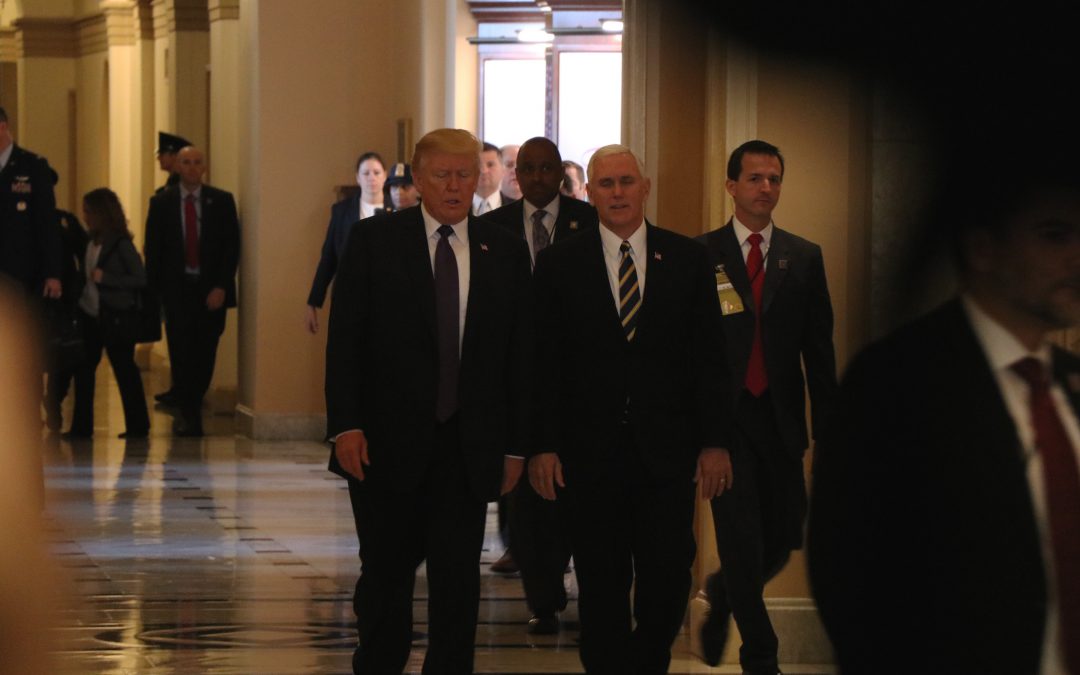WASHINGTON – President Donald Trump went to the Capitol for the second time this year Thursday to reconfirm his support for the House tax cut bill that wash passed a few hours later with no Democratic support, but avoided questions from reporters on whether Republican Roy Moore should drop out of the Alabama Senate race because of sexual harassment allegations.
The president also brushed by questions on allegations that Sen. Al Franken D-Minn., groped newscasters Leeann Tweeden in 2006 before he ran for Senate.
It is the third time Trump has been pressed to take a position on the allegations that Moore sexually harassed at least six teenage girls when he was in his 30s and the first time he was questioned about Franken. Each time he has had no comment.
Tweeden released a photo early Thursday showing Franken groping her breasts as she was asleep. Franken has since apologized. “The first thing I want to do is apologize: to Leeann, to everyone else who was part of that tour, to everyone who has worked for me, to everyone I represent, and to everyone who counts on me to be an ally and supporter and champion of women,” he said.
The White House and Trump may be avoiding the topic because of the president’s history of being accused of sexual misconduct.
Moore pushed back on the allegations through two of his lawyers, and responded on Twitter to some GOP leaders’ calls to step aside.
The former judge tweeted “Dear Mitch McConnell, Bring. It. On.”
The Alabama special election is Dec. 12. Rumors have resurfaced that Republican leadership is searching for a write-in candidate, possibly embattled Attorney General Jeff Sessions.
During Trump’s meeting with the House Republicans, members were described as taking selfies and cheering. Rep. Harold Rogers, R-Ky., described the meeting as a “pep rally.”
But the Moore and Franken controversies marred Trump’s visit, although shortly afterward the House passed tax bill 227-205, with all Democrats and 13 Republicans voting against it.
New York Republican Rep. Peter King, who voted no on the GOP bill, said his opposition was based on the inclusion of a repeal of the requirement that all Americans get health insurance in the Senate version of tax cut legislation.
“For us to be doing both tax reform and health care reform in a two-week period when it took two years the last time, I have some concerns about that,” King said.

